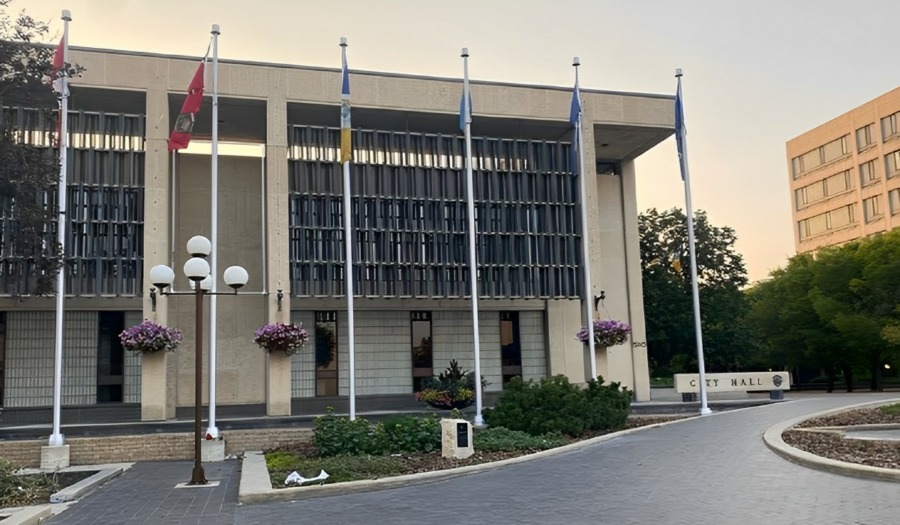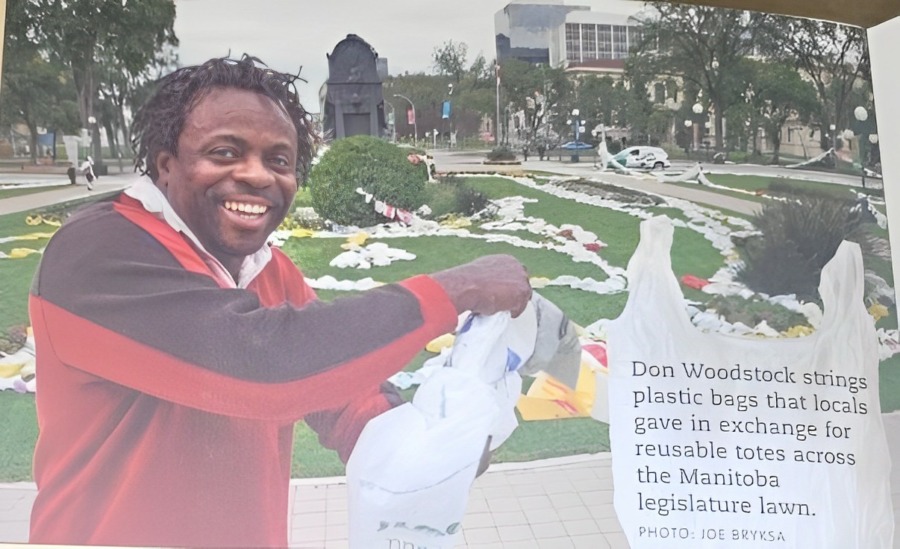What Did Winnipeg City Hall Know About Shindico’s Prohibited Runoff Water Dumping?
- TDS News
- Trending
- Western Canada
- September 12, 2023

Manitoba Government Ulyatt Report states, “Shindico had been given the privilege of dumping its runoff water into existing combined sewer systems which he submits is prohibited under Environmental Licenses.”
Part 8
Winnipeg City Hall remains under intensified scrutiny for its management of planning, development, and environmental matters, particularly in the aftermath of the Parker Lands ruling. This verdict, delivered by the magistrate of the Court of King’s Bench, has laid bare dubious practices and decision-making within City Hall’s approach to land development initiatives. Justice McCarthy’s findings revealed that under the guidance of Councillor John Orlikow, Winnipeg City officials intentionally impeded the progress of the Parker Lands project. This ruling has triggered an extensive review of the entire process and subsequent judgments related to Parker Lands.
Our current emphasis is on the Ulyatt report. Appointed on September 22, 2015, by the Government of Manitoba, George Ulyatt assumed the role of Inquiry Officer. His mandate involved a comprehensive evaluation of the Notice of Expropriation submitted by the city of Winnipeg, aimed at procuring approximately 25 acres from the Parker Lands development to construct a retention pond.
Mr. Ulyatt dissected various aspects of the city’s actions, including a crucial section addressing environmental concerns. In his report, Mr. Ulyatt wrote the counsel for Gem Equities, Mr. Newman highlighted that the adjacent property (Taylor Lands) situated next to the Parker Lands development, was owned by Shindico and “had been given the privilege of dumping its runoff water into existing combined sewer systems which he submits is prohibited under Environmental Licenses.”
We’ve reached out to the Ministers of Climate Change in both the Manitoba Government and the Federal Government regarding the issue of runoff water dumping as outlined in the Ulyatt Report. We are still awaiting their response.
The pressing question arises: How did Winnipeg City Hall respond to the Ulyatt report that Shindico was dumping runoff water, and who was ultimately responsible for approving such actions? Is it appropriate for a Councillor to be heavily engaged in a project alongside a developer who has made campaign contributions to them?
What was the level of oversight, environmental assessments, and decision-making processes surrounding the development by the City of Winnipeg before and after the Ulyatt report? Did City Hall temporarily halt the project, conduct subsequent environmental assessments, or take corrective actions after the report was presented to the Mayor and Council? Were there any fines levied? Was the province of Manitoba notified, and the Minister and Department for the environment? What measures have been taken to prevent any further actions from any developer from dumping runoff water into sewers that contradicts environmental licenses?
What may be more troubling about the Ulyatt report is the cone of silence instituted by Manitoba’s elected officials. Despite the need for assurance that his council members would be held accountable for their actions, Mayor Scott Gillingham of Winnipeg missed the opportunity to demonstrate a strong commitment to transparency and accountability, leaving citizens concerned about the administration’s approach.
Despite months since the judge’s ruling on the Parker Lands situation, leaders of Manitoba’s major parties—Liberals, Conservatives, and the NDP—have remained silent.
Furthermore, an alarming trend has developed or what Manitobans are referring to as an unspoken pact. The provincial party leaders are unwilling to address the Winnipeg City councillors deliberately slowing down construction projects or overstepping their boundaries. A request was sent to all four party leaders who want to form the next government in October, the NDP, PC, Liberals and Green, to provide a statement on how they would ensure Winnipeg City Hall works for the citizens and asked to respond to two questions.
How would your party ensure that recommendations from inquiry officers like Mr. Ulyatt are heeded by city officials, preventing their non-compliance?
Should developers be permitted to do business with the City of Winnipeg if they are found to be violating environmental licenses that are prohibited?
All four parties did not respond to our inquiries. A request was also sent to the Manitoba Party, but their email address bounced back.
In our series of articles seeking clarity from Winnipeg City Hall and the current provincial government, it is important to note how we got here. It all started with former Mayoral Candidate Don Woodstock, who formerly asked for an ethics investigation into Councillor John Orlikow after his name was cited 101 times in the magistrate’s ruling for deliberately slowing down the Parker Lands project.

Why is he the only one asking tough questions of the Mayor and City Council on the environment? Where are the elected officials from the Province of Manitoba? Why are only independent journalists and organizations investigating the severity of issues outlined in the judge’s ruling? Where is the dedicated coverage from the mainstream media?
Many Manitobans must know that Mr. Woodstock has a long history of advocating for the environment, so much so that he was on the front cover of David Suzuki’s Finding Solutions magazine for his advocacy for changing the name from Garbage Day to Recycle Day. The Foundation hailed Mr. Woodstock as a Community Champion for the environment and a leader in his own rights. But more significantly, Mr. Woodstock was instrumental in having the City of Winnipeg incorporate the larger 240-litre recycling Blue Bins used City-wide in a unanimous vote.
Additionally, he advocated over 10 years ago to replace single-use plastic bags at grocery stores with reusable ones, which is now adopted nationwide. This meant more items were being recycled and less into the landfills.
“What Don Woodstock has accomplished speaks to the power of the individual,” said Ian Hanington, Communications Specialist for the David Suzuki Foundation, quoted in the Rocking the Boat article
He is a staunch advocate for climate change and environmental protection, a commitment that led him to face legal action during his recent Mayoral campaign. One that saw him endorsing the use of recycled crushed aggregate for road construction, an innovative approach that seeks to reduce the environmental impact of infrastructure development. Despite legal challenges, his advocacy demonstrates his deep-seated belief in finding practical solutions to pressing ecological issues faced by the City of Winnipeg.
As we continue to assess The Parker Lands ruling and its effects on us all, environmental concerns in the Ulyatt report and subsequent inquiries have exposed potential inefficiencies and a need for better governance within Winnipeg City Hall. As the layers of this issue are peeled back, it is evident that more comprehensive scrutiny is required to address these concerns. City Council must engage with the public, answer pertinent questions, and work towards restoring trust and accountability in their decision-making processes.
Justice McCarthy’s ruling underscores the pressing need for Winnipeg City Hall to shed light on its environmental stewardship. As the city grapples with these revelations, the proactive involvement of advocates like Don Woodstock becomes essential in holding them accountable. The country is bearing witness to what is happening in Ontario, with the expropriation of tens of thousands of hectares in the Greenbelt directly resulting from poor governance and little oversight.
As Winnipeg’s environmental narrative pages continue to unfold, the resounding call for ethical governance and environmental responsibility resonates clearly through the streets and halls of the council, leaving Winnipeggers with more questions about their ability to be good custodians of a greener, more sustainable future.








